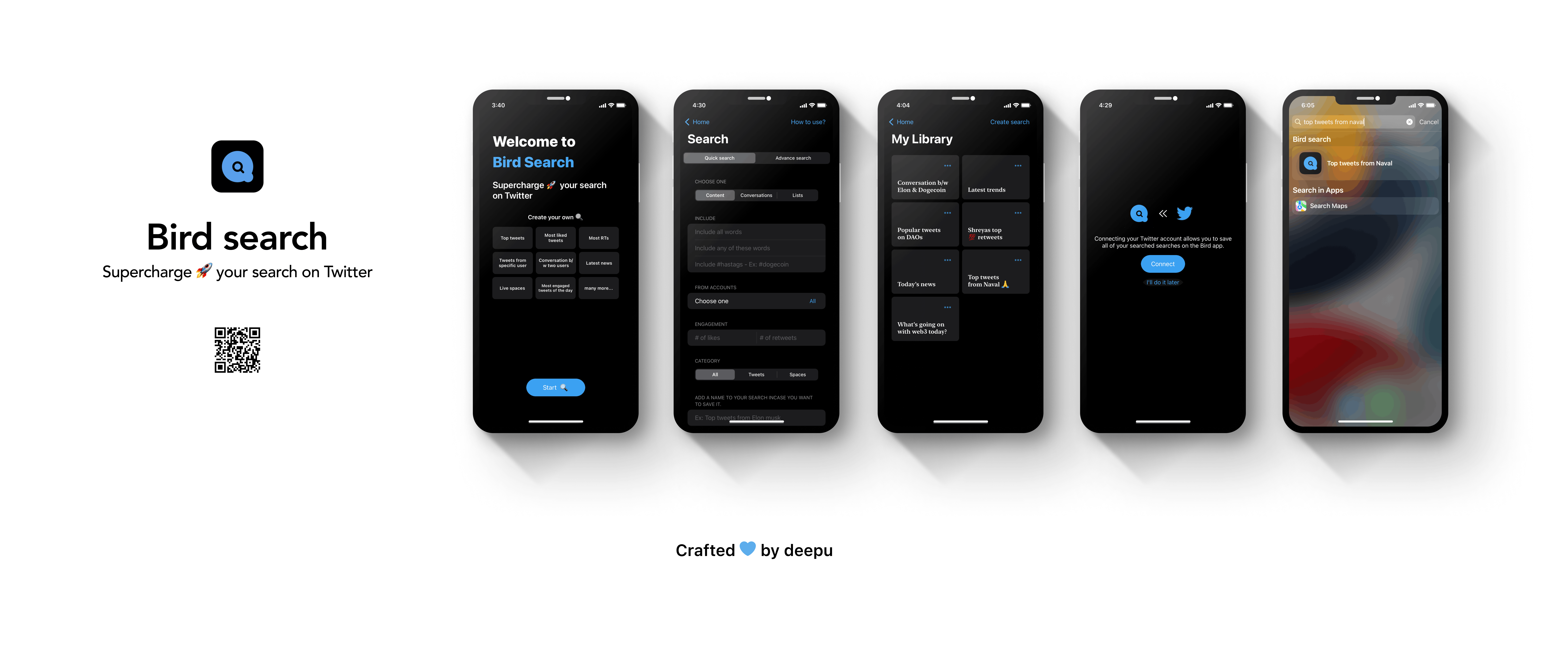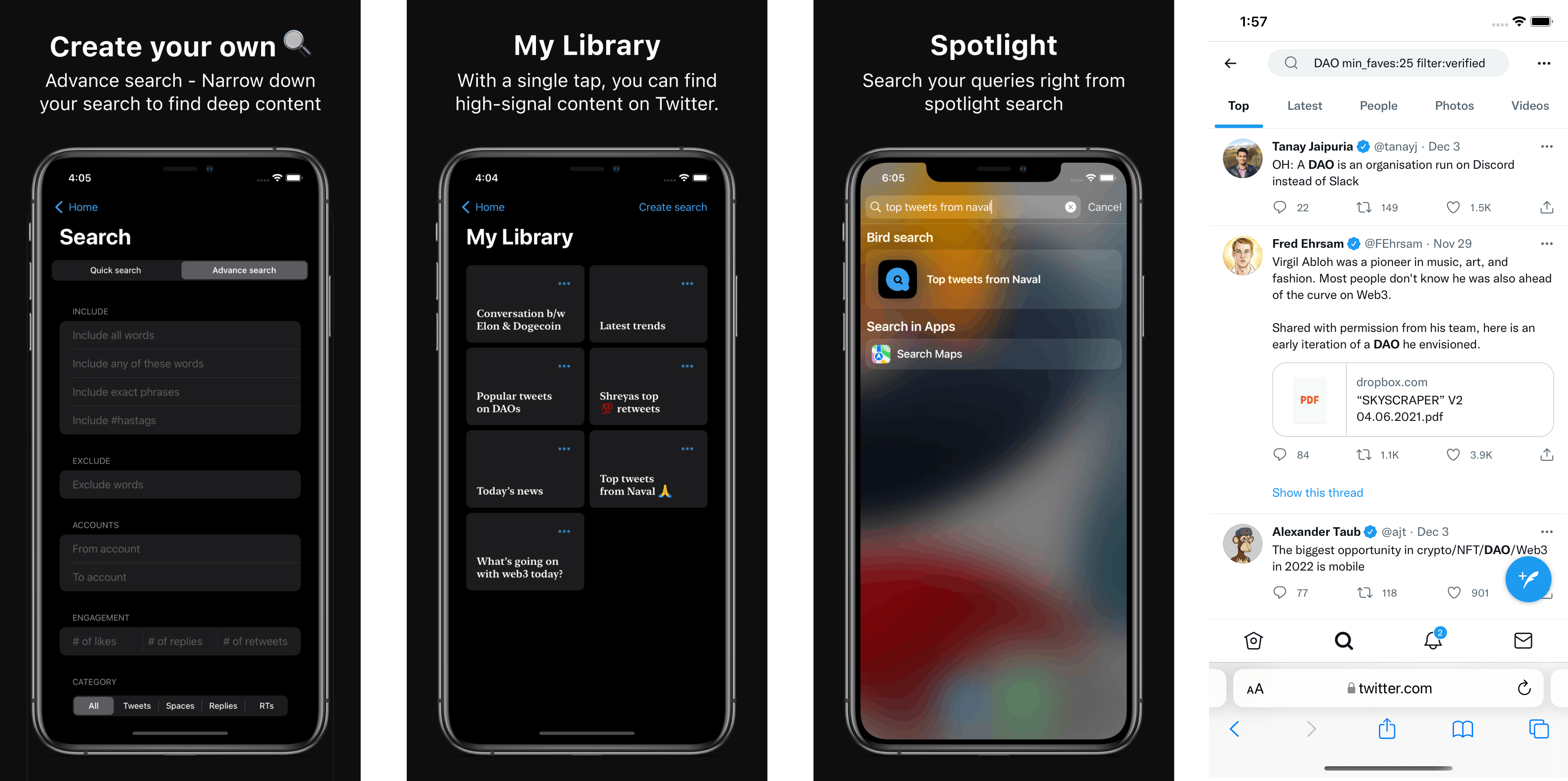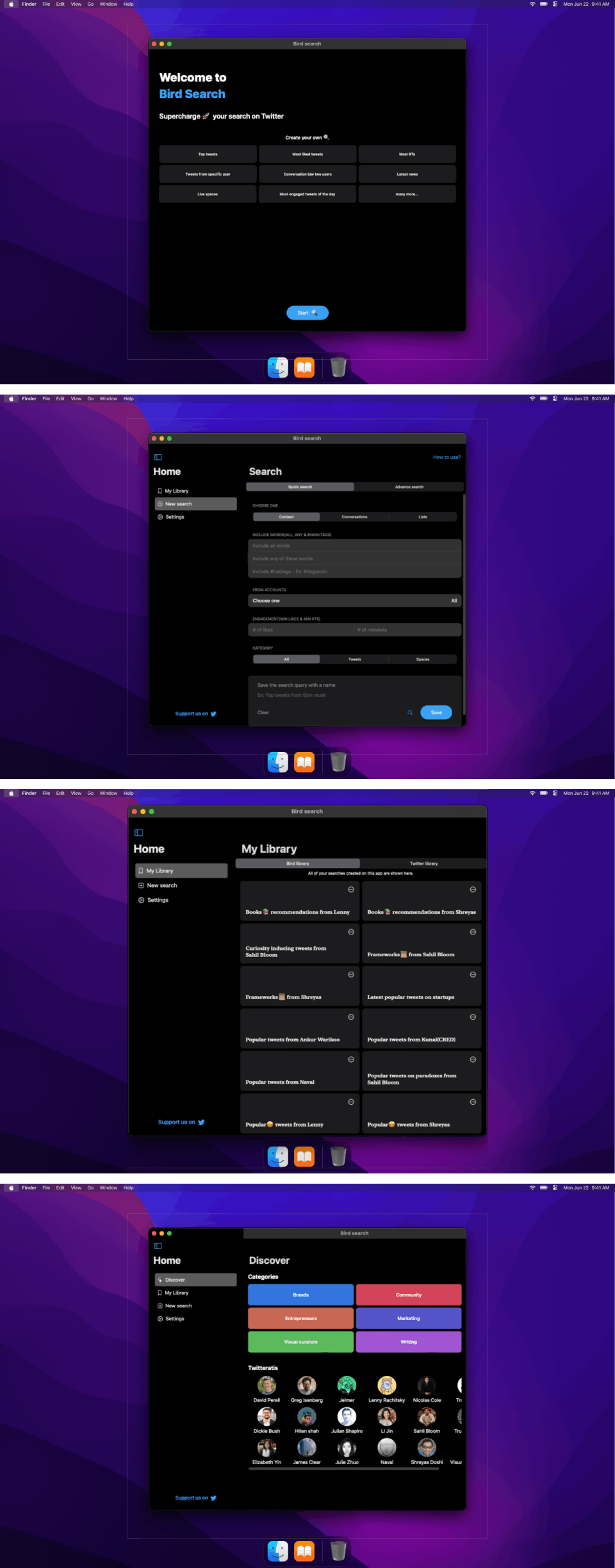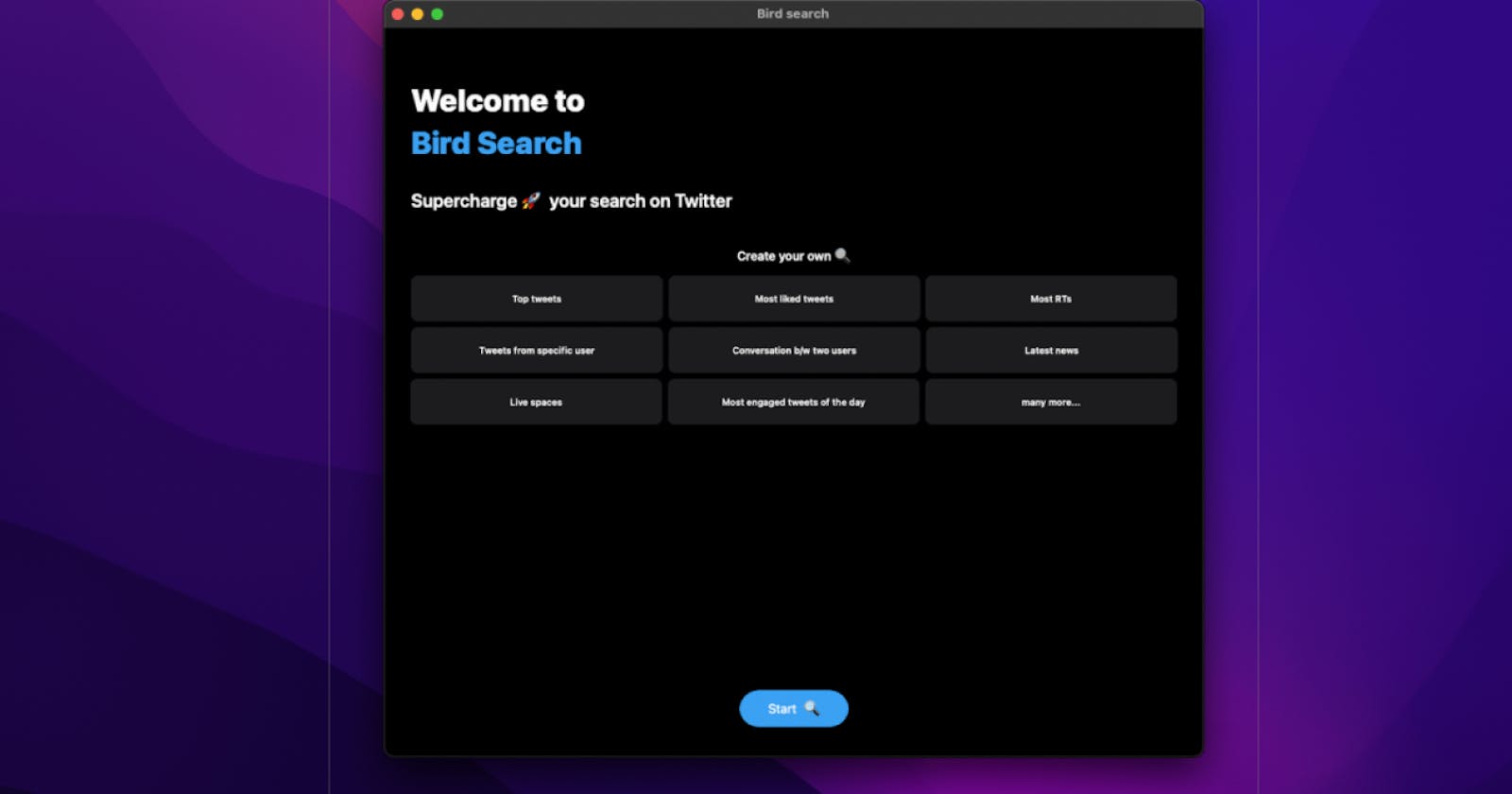I'm fairly new to backend dev & have a decent knowledge on how to build frontend apps using Swift. When I chose to become Indie, I wanted to have a clear idea of what Indie implies in terms of product development.
For me Indie 101 is:
- Product 20%
- Design 20%
- Coding 20%
- Mkt 20%
- Others 20%
As an Indie, you're pretty much doing everything on your own & have less time to do it. Before moving to lowcode, I've tried building things from scratch & failed to do it on backend, I've spent like 4-6 weeks on backend, then I've felt like it is not worth to build everything from scratch since you don't know if the product is actually going to work or not. I've decided to look for leanest solutions, at the same time not compromising the user experience. I had fair knowledge on no-code & low-code market because of my past experience where we've adopted several tools for marketing initiatives.
What did I build?
I am a savvy user on Twitter & I use Twitter advanced search thoroughly. While the feature is great, but I've found out that the feature has poor adoption among users who are not part of tech world. This is due to not knowing the feature exists and also hard to memorize the exact search filters to find tweets.
So, I've prioritized these problems
- Build a solution that focuses more on "what" to search instead of "how" to.
- Unlock several search filters (these search filters are currently not visible on default twitter advanced search)
- Library to store all the search phrases.
- Introduce "Discover" section to educate user how to find the best content.
- Launch it on iOS first because the advanced feature doesn't even exists unless you know how to directly input the search filters.
Bird search - Your advanced search app for Twitter
To download click here


How did I build? Tech stack:
Frontend: Swift Backend: iCloud/Xano Not much to talk about frontend here. But when I've decided the tech stack for backend I wanted to make sure "Privacy" is the by product for the user generated data.
User generated data is stored in iCloud.(Private) Data generated in Discover section is stored in Xano.(Public)
Xano is a low-code server-less for backend development
Pros:
- When you create a table, a default CRUD APIs are automagically generated (this itself saves you 4-8 hours easily)
- No need to manage servers, just watch out the peak usage to scale your servers.
- Easy to adopt for beginners (no need to have backend knowledge, but a decent knowledge is enough on building tables and using APIs)
- Export data to another service provider
- Integrations with 3rd party providers many more...
Cons:
- The product is not matured enough in a sense that if you want to build complex server-side logic you are limited to it(While, I've not checked out how their server-less functions are working, but if you so, leave your feedback in the comments :) )
- Not many 3rd party integration providers
- Usability issues on their dashboard
- Expensive pricing (they could do little better in terms in increasing usage limits on their $59 plan)
- Abstraction layers such as Xano are not great to build scalable products(of course it depends on how you are scaling your product) but for small & medium size products is more than enough.

You can checkout app here: apps.apple.com/us/app/bird-search/id1593852..
Conclusion:
- Don't reinvent wheel, you've lot to work when you are hacking in Indie world.
- Don't think scalable solutions unless you know the product work until then use low code solutions like Xano
- If you want to introduce low code tools in your company, start with projects that are short lived, it is a good place to build MVPs and convince your team. Ex: We've introduced low code and no code tools for marketing projects initially.
(Note: I am not affiliated to Xano)
